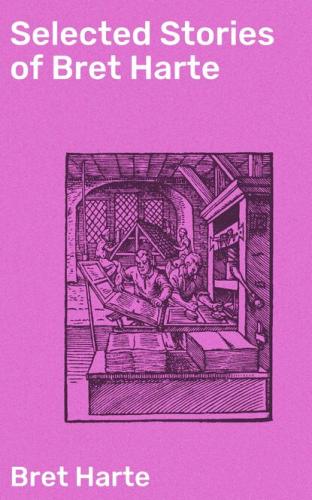Bret Harte
Selected Stories of Bret Harte
Published by Good Press, 2019
EAN 4057664099358
Table of Contents
THE RIGHT EYE OF THE COMMANDER
INTRODUCTION
The life of Bret Harte divides itself, without adventitious forcing, into four quite distinct parts. First, we have the precocious boyhood, with its eager response to the intellectual stimulation of cultured parents; young Bret Harte assimilated Greek with amazing facility; devoured voraciously the works of Shakespeare, Dickens, Irving, Froissart, Cervantes, Fielding; and, with creditable success, attempted various forms of composition. Then, compelled by economic necessity, he left school at thirteen, and for three years worked first in a lawyer's office, and then in a merchant's counting house.
The second period, that of his migration to California, includes all that is permanently valuable of Harte's literary output. Arriving in California in 1854, he was, successively, a school-teacher, drug-store clerk, express messenger, typesetter, and itinerant journalist. He worked for a while on the NORTHERN CALIFORNIA (from which he was dismissed for objecting editorially to the contemporary California sport of murdering Indians), then on the GOLDEN ERA, 1857, where he achieved his first moderate acclaim. In this latter year he married Anne Griswold of New York. In 1864 he was given the secretaryship of the California mint, a virtual sinecure, and he was enabled do a great deal of writing. The first volume of his poems, THE LOST GALLEON AND OTHER TALES, CONDENSED NOVELS (much underrated parodies), and THE BOHEMIAN PAPERS were published in 1867. One year later, THE OVERLAND MONTHLY, which had aspirations of becoming “the ATLANTIC MONTHLY of the West,” was established, and Harte was appointed its first editor. For it, he wrote most of what still remains valid as literature—THE LUCK OF ROARING CAMP, THE OUTCASTS OF POKER FLAT, PLAIN LANGUAGE FROM TRUTHFUL JAMES, among others. The combination of Irvingesque romantic glamor and Dickensian bitter-sweet humor, applied to picturesquely novel material, with the addition of a trick ending, was fantastically popular. Editors began to clamor for his stories; the University of California appointed him Professor of recent literature; and the ATLANTIC MONTHLY offered him the practically unprecedented sum of $10,000 for exclusive rights to one year's literary output. Harte's star was, briefly, in the ascendant.
However, Harte had accumulated a number of debts, and his editorial policies, excellent in themselves, but undiplomatically executed, were the cause of a series of arguments with the publisher of the OVERLAND MONTHLY. Fairly assured of profitable pickings in the East, he left California (permanently, as it proved). The East, however, was financially unappreciative. Harte wrote an unsuccessful novel and collaborated with Mark Twain on an unremunerative play. His attempts to increase his income by lecturing were even less rewarding. From his departure from California in 1872 to his death thirty years later, Harte's struggles to regain financial stability were unremitting: and to these efforts is due the relinquishment of his early ideal of “a peculiarly characteristic Western American literature.” Henceforth Harte accepted, as Prof. Hicks remarks, “the role of entertainer, and as an entertainer he survived for thirty years his death as an artist.”
The final period extends from 1878, when he managed to get himself appointed consul to Crefeld in Germany, to 1902, when he died of a throat cancer. He left for Crefeld without his wife or son—perhaps intending, as his letters indicate, to call them to him when circumstances allowed; but save for a few years prior to his death, the separation, for whatever complex of reasons, remained permanent. Harte, however, continued to provide for them as liberally as he was able. In Crefeld Harte wrote A LEGEND OF SAMMERSTANDT, VIEWS FROM A GERMAN SPION, and UNSER KARL. In 1880 he transferred to the more lucrative consulship of Glasgow, and ROBIN GRAY, a tale of Scottish life, is the product of his stay
